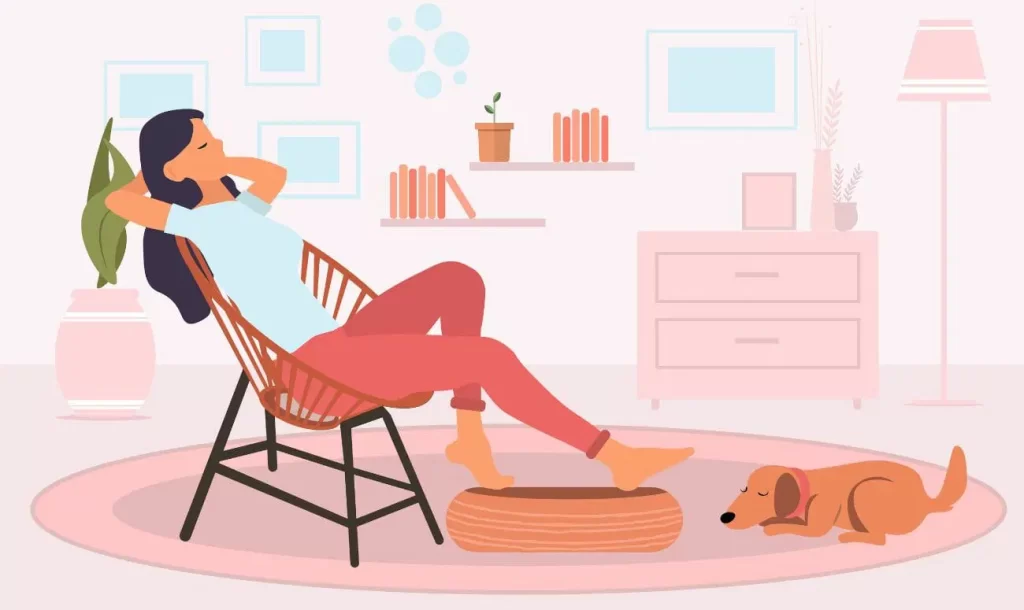We all want to work hard, be as productive as we can be, and make sure we make the most of our days. They say an idle mind is the Devil’s workshop and slacking is always seen in a very bad light. But if we truly understood the power of conscious idleness, we’d understand how much it could help our brains.
Living a Scheduled Life
However hard we may try to break away from the concept, humans are slaves of time, rising in unison to wake up and work hard. Our scheduled existence has already overstepped the bounds of work and spilled into our free time. Even schoolchildren need to maintain a tight schedule of assignments, homework, and extracurricular classes, and sports activities. The modern world has tapped our daily reserves with constant distractions. With a schedule so tight, how can we expect ourselves to create when our own reservoir of ideas is drained?
Never Having Enough Time
We may feel moralistically guilty about being unproductive and inactive, for a day or even an hour. This is actually a type of anxiety called “time anxiety” and everyone experiences it. It stems from the feeling of thinking there’s never enough time. Since childhood, we’ve been taught that the concept of “doing nothing” is extremely wrong and against the rules. We’ve been conditioned to believe that being unproductive and lazy is something we should never be proud of. This anxiety also comes from the idea of time being out of our control. Humans often base their happiness and success on their ability to be useful, so when we’re doing nothing and time is passing by, our worry levels increase.

The Art of Conscious Idleness
In 1670, French mathematician and philosopher Blaise Pascal wrote in his Pensées, “All of humanity’s problems stem from man’s inability to sit quietly in a room alone.”
When we’re busy, our brains aren’t necessarily functioning at their best. Conversely, when we take a break and engage in mindfulness activities like meditation, walking, gardening, etc., our mind kicks into overdrive. We may think we’re taking a mental break, but the problem-solving brain never rests. However, “unconscious thought” has actually been proven to improve decision-making. The areas of the brain involved in encoding a decision problem are reactivated during this time, meaning the brain works steadily on the problem outside of our conscious awareness. These findings from neuroscience conclude that we have more creative potential when leading a life of leisure instead of constantly being busy and hurried.
How Can Being Idle Lead to Better Thinking?
The biggest problem with our inability to just sit and be within ourselves is that the type of thinking that takes place when we’re reflecting inwards is what helps make us who we are. This type of thought is called default mode processing, the default resting state of our minds, though this resting state is anything but idle. The brain uses the default mode of processing for self-awareness and reflection, recalling personal memories, imagining the future, feeling emotions about the psychological impact of social situations, and constructing moral judgments.
The brain’s default mode networks help us in various ways including; allowing us to process higher-level, abstract information including social, emotional, and moral implications, helping us learn about ourselves, and deriving meaning from our experiences. Through reflection, daydreaming, and introspection, we make sense of information and experiences to come up with new insights and ideas.
But being idle doesn’t just mean ‘not working’. You need to be conscious of the type of idleness you engage in to reap the benefits. Being idle doesn’t mean catching up on Netflix, reading a book or hanging out with your friends, or worse, mindlessly scrolling through your phone. Doing nothing requires a calm, quiet environment that encourages relaxation and reduces distractions.
Below, you’ll find 3 ways in which you can ‘do nothing’.
1. Sleep
One of the most effective ways to rest your brain is to sleep. Getting adequate sleep every night improves health, productivity, athletic performance, memory, learning, and much more. While sleep deprivation can reduce our alertness, judgment, decision-making, creative thinking, memory and learning, response times, and risk-taking. This can deeply impact our ability to be productive and effective at work.
2. Go Outdoors
Spending time outdoors, specifically in nature, is a wonderful solution for managing mental fatigue. Being outside in nature helps us in various ways, from recovering from the effects of “directed attention fatigue”, to decreasing stress and improving mood. It does wonders to refresh and restore our energy.

3. Meditate
Besides renewing our powers of concentration, meditation builds our attention by helping strengthen connections between different areas of our default mode network. This significantly improves visuospatial processing, working memory, and executive functioning, and reduces fatigue and anxiety. The DMN network of brain cells is responsible for how you think about yourself and others, as well as how you remember the past and ponder over the future. It is only active during passive rest and mind-wandering.
In the end, there’s a huge gap between reading articles like these or taking a lunch break in the park and actually committing to including more rest in your life. But we hope that as this article comes to an end, your will to practice conscious idleness in your life begins. Start easy with one suggestion and schedule it into your day, every day for a month. Practice it consistently and see where being idle takes you.
Read more: Can’t Concentrate? Mantra Meditation, a Form of Guided Meditation Can Help
Like & Follow ThinkRight.me on Facebook, Instagram, Twitter and Telegram to stay connected.






























